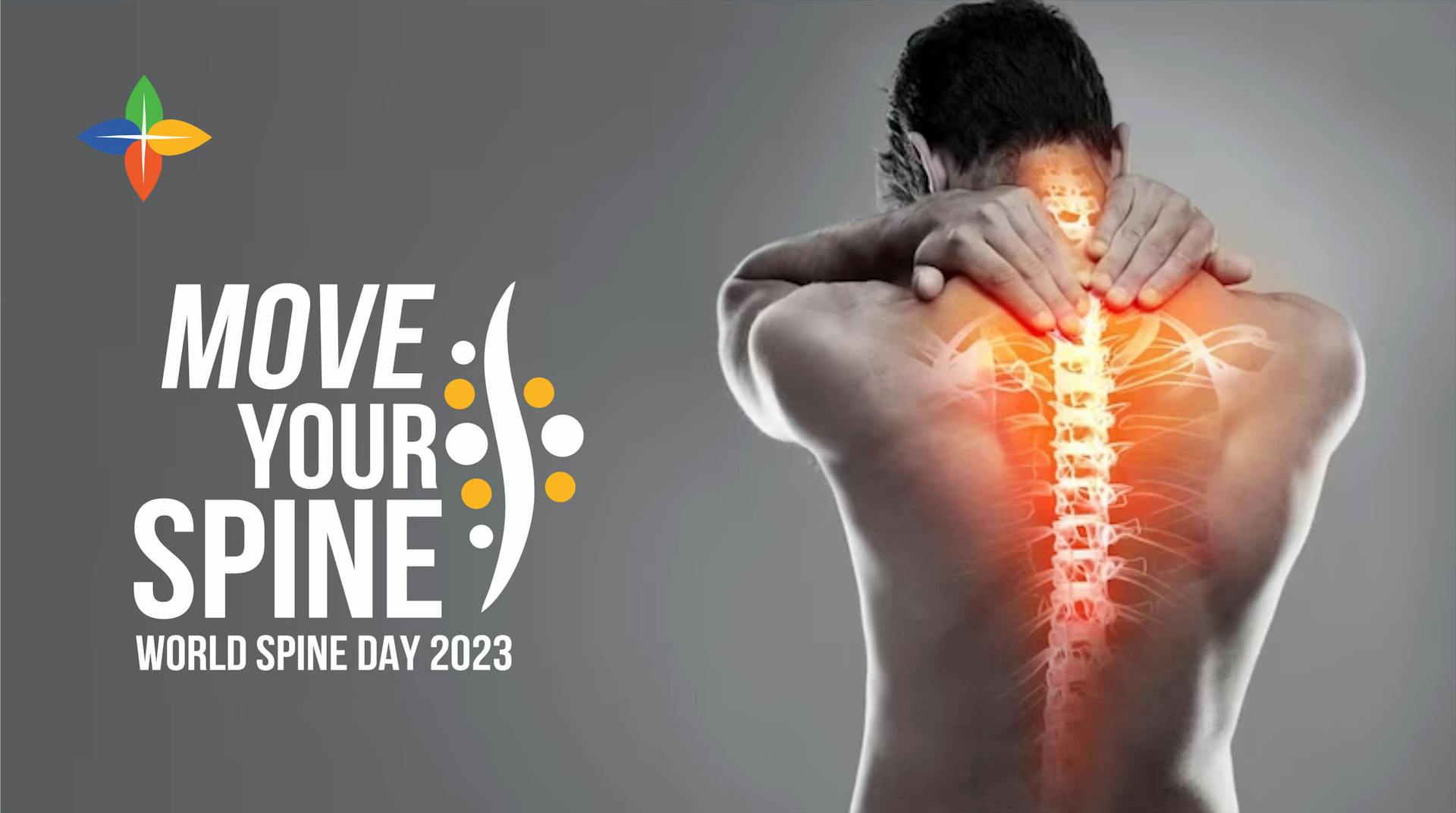Straighten Up for World Spine Day: A Guide to Better Posture
By:

Apex Hospitals
16-10-2023 5 Min Read

Every year, on October 16th, World Spine Day brings our attention to the critical role our spinal cord plays in our daily lives. This year's theme, "Move your spine," highlights the need to focus on posture, a key element in maintaining a healthy spine. In this blog, we'll delve into the significance of good posture, its impact on spinal health, and practical tips to correct and maintain it.
The Spinal Cord: The Backbone of Your Body
The spinal cord is a vital component of your musculoskeletal system, providing structural support, facilitating movement, and safeguarding the central nervous system. Compared to the human brain, heart, kidneys, or liver, the spinal cord is sometimes overlooked or underestimated as an essential component of the human body. The term "Central Nervous System" refers to the combined brain and spinal cord functions. It is composed of a neural network that is exceedingly intricate and sophisticated. The central nervous system (CNS) is the body's principal relay station and is responsible for all of the fundamental activities of the body, including breathing, walking, talking, movement, and reflexes. It also plays a role in regulating emotions. It's no exaggeration to say that your spinal health is foundational to overall well-being.
Understanding the Impact of Poor Posture
Poor posture can profoundly impact your spine. Over time, it can lead to various spinal and health problems, including
- Spinal Misalignment: One of the most significant effects of poor posture is spinal misalignment. Slouching or hunching can disrupt the natural curvature of the spine. This misalignment stresses the spinal structures, leading to discomfort and pain.
- Increased Risk of Scoliosis: Poor posture, particularly during adolescence when the spine is still developing, can contribute to or exacerbate scoliosis, a condition characterized by an abnormal sideways curvature of the spine.
- Herniated Discs: Prolonged poor posture can lead to excessive pressure on the intervertebral discs, increasing the risk of disc herniation. This painful condition occurs when the inner core of a disc protrudes through its outer layer, compressing nearby nerves and causing pain, numbness, and weakness.
- Muscle Imbalances: Poor posture can result in muscle imbalances. Some muscles become overused, while others weaken due to lack of use. These imbalances can affect the stability and support of the spine.
- Chronic Back Pain: Chronic back pain is the most common consequence of poor posture. Over time, the strain placed on the muscles and ligaments of the back can lead to persistent discomfort and pain, which can interfere with daily activities and reduce the quality of life.
- Neck Pain: Poor posture, especially when using electronic devices like smartphones and laptops, can cause "tech neck" or "text neck," which is characterized by neck pain, stiffness, and strain due to the excessive bending of the neck.
- Reduced Range of Motion: Poor posture can lead to a decrease in the spine's range of motion. This limitation in movement can affect your ability to perform everyday tasks and activities.
- Nerve Compression: Prolonged poor posture can compress nerves along the spine, resulting in symptoms like numbness, tingling, or even weakness in the arms and legs.
The Benefits of Correct Posture
Maintaining good posture offers a wide range of benefits for both your physical and mental well-being. Here are some advantages of practicing good posture:
- Reduced Musculoskeletal Pain: Proper alignment of the spine and musculature reduces the strain on muscles, ligaments, and joints, leading to decreased back, neck, and shoulder pain.
- Enhanced Breathing: Good posture expands your lungs, increasing oxygen intake. This can improve energy levels and overall well-being.
- Enhanced Circulation: Good posture promotes better blood flow, which is essential for delivering oxygen and nutrients to the body's tissues and removing waste products.
- Reduced Wear and Tear: Proper alignment reduces the wear and tear on the joints and spine, potentially preventing the development of musculoskeletal conditions.
- Increased Productivity: Improved posture can enhance focus and concentration, making you more productive in your work or daily tasks.
- Optimal Muscle Function: Good posture helps balance muscle strength and flexibility, allowing muscles to function more efficiently.
- Enhanced Core Strength: Maintaining proper posture requires the engagement of core muscles, contributing to a more robust and stable core.
- Reduced Risk of Injury: Good posture reduces the likelihood of falls, strains, and other injuries by improving balance and coordination.
- Long-Term Health: By practicing good posture, you can reduce the risk of developing long-term health issues related to musculoskeletal disorders and poor circulation.
- Better Sleep: Proper spine alignment can improve sleep quality, reducing the risk of sleep-related issues like sleep apnoea.
Tips for Achieving and Maintaining Good Posture
- Ergonomic Workspace: Ensure your workspace is ergonomically designed. Adjust your chair and computer monitor to align with your natural posture.
- Regular Breaks: Take short breaks during extended periods of sitting or standing to stretch and adjust your posture.
- Exercise: Engage in activities that strengthen your core and back muscles, like yoga or Pilates.
- Body Awareness: Pay attention to your posture throughout the day. Regularly check and correct your alignment.
- Proper Seating: Use chairs with good lumbar support to maintain the natural curve of your spine.
- Pillow Support: Choose a supportive pillow for a comfortable night's sleep.
Stay Active: Regular physical activity helps maintain overall musculoskeletal health.
Conclusion
On this World Spine Day, remember the theme: "Move your spine." Taking care of your spinal health starts with maintaining good posture. The benefits of proper posture are immeasurable, from reduced spine pain to enhanced overall well-being. By following the tips and seeking professional help when necessary, you can ensure that your spine remains the strong and supportive foundation it's meant to be. Commit to Move Your Spine for a healthier, pain-free future!
If you are dealing with any such spinal issues, don’t hesitate to consult our experts.
Related Articles
Connect With Us
Health In A Snap, Just One App.
KNOW MORE

























































































































































